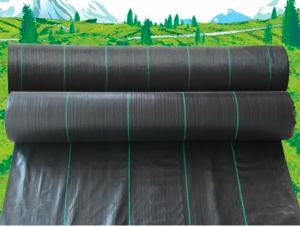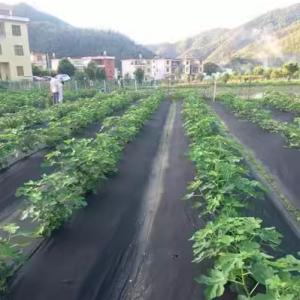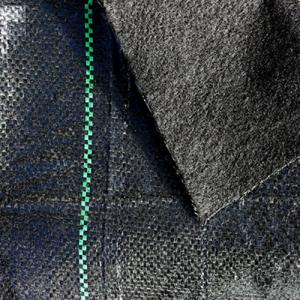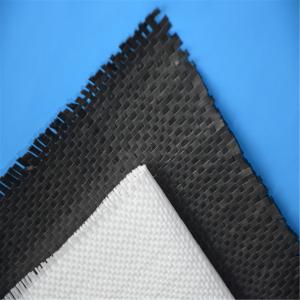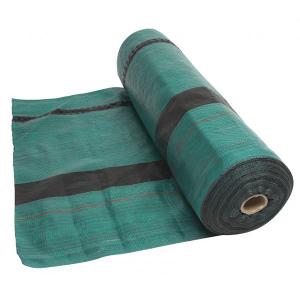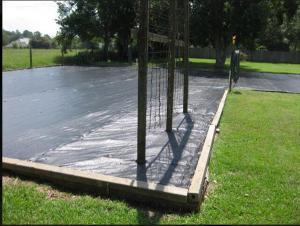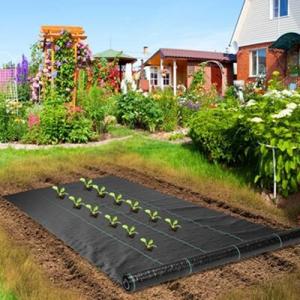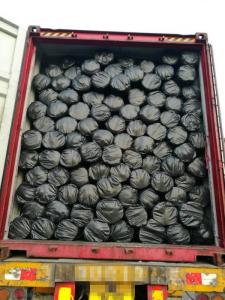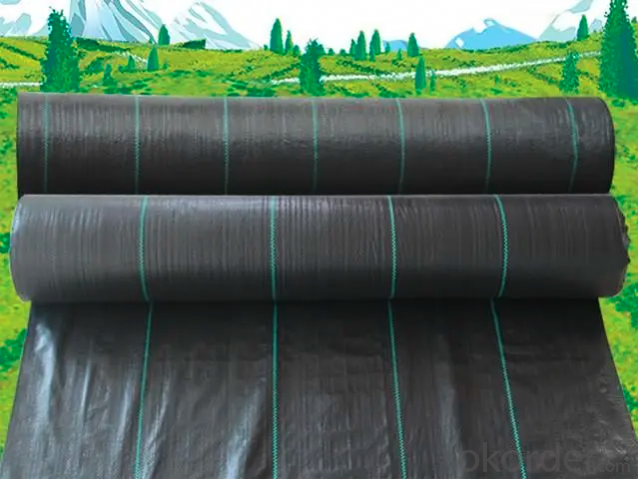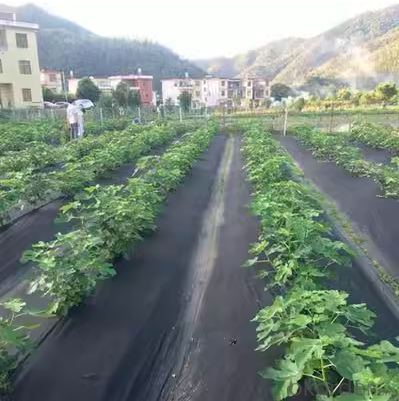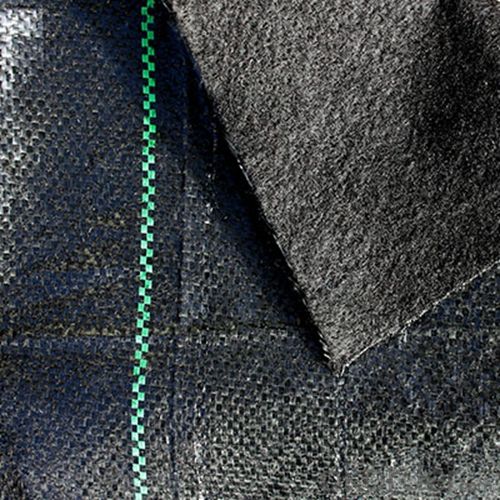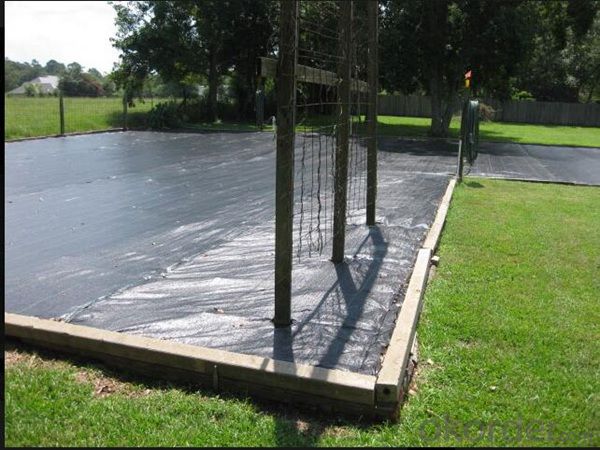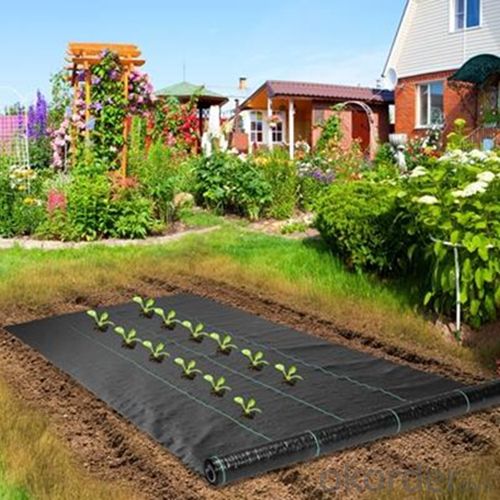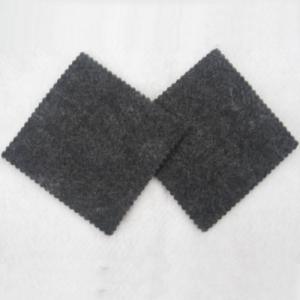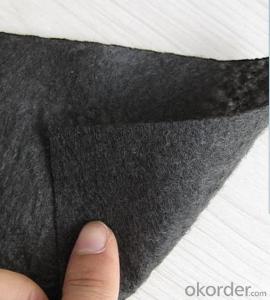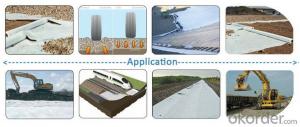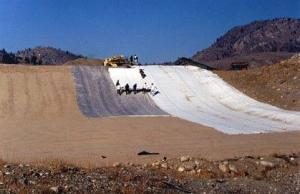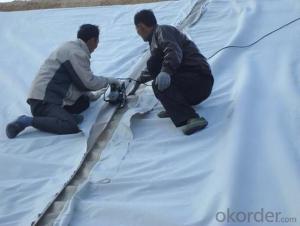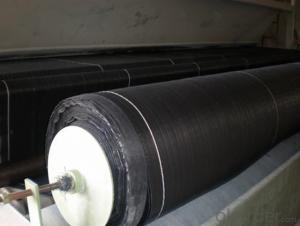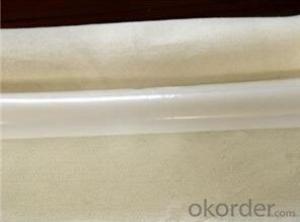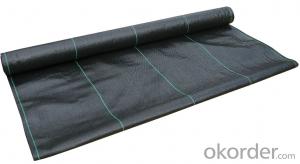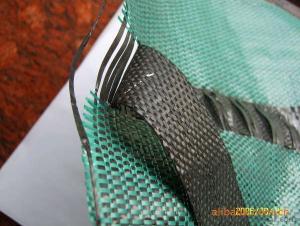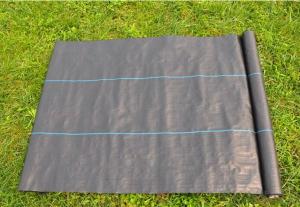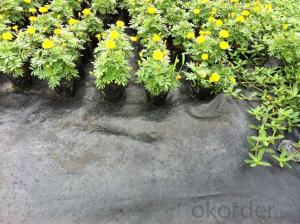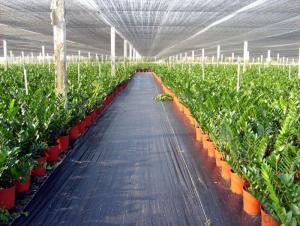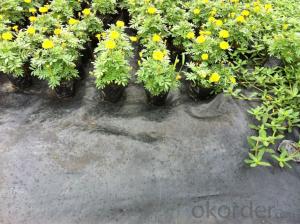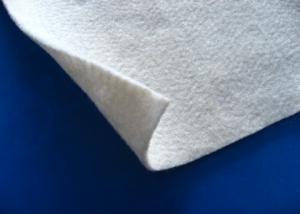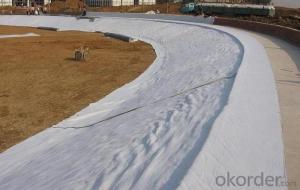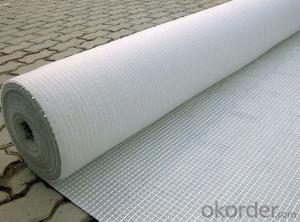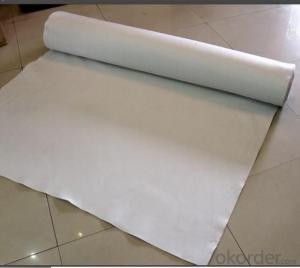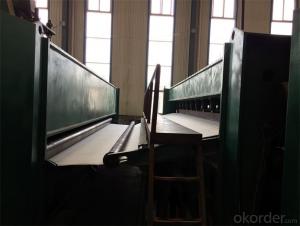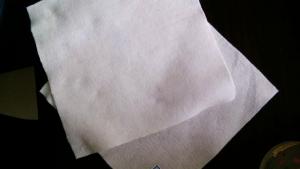PP Woven Fabric/ Ground cover/ Weed Barrier
- Loading Port:
- China main port
- Payment Terms:
- TT or LC
- Min Order Qty:
- 5000 m²
- Supply Capability:
- 1000000 m²/month
OKorder Service Pledge
OKorder Financial Service
You Might Also Like
Product Description
Material: | 100% Polypropylene |
Width: | Max width is 260cm,can be slitting as customer's requirement |
Weight: | 10gsm-270gsm |
Type: | Hard, Soft, and Crispy etc.; |
Color: | Super White, White, Gray, Red, Green, Black, etc.; |
Non-woven Technology: | Spun-Bond |
Features: | Anti-bacterial,Anti-static,Anti-UV,Fireproof,Wtaerproof,Hydropilic,Laminated(pp+pe),Printed,Preforation,etc. |
Samples | Stock samples will be free,normaly have white one |
Port | Shanghai or Ningbo |
Payment | 30% deposit in advance,against the copy of B/L,pay the balance |
Delievery Time | About 15days after received u deposit |
Nonwoven fabric Usage:
(10-40gsm) for medical/hygiene as disposable medical products and decrotions on ceremony
(15-30gsm) diapers,personal healthcare products
(60-100gsm) shopping bags,tablecloth,compound packing material,filter material
(50-120gsm) household products,furniture,spring mattress,bedding and suitcase interlinging
(50-100gsm1-5%UV) agriculture covers and weed-control fabric
Features
1. Weed suppressant and drainage control landscaping fabric
2. Easy to use, Environmentally friendly
3. Allows water, air and nutrients through, suppressing weeds without the use of chemicals
4. Reduces the level of watering required due to the slower rate of water evaporation
Introduction
Geotextiles are composed from synthetic polypropylene/polyester fibres through a mechanical process of needling the fabric and adding, when necessary, a thermo fused process, resulting in a uniform porous structure with excellent tensile strength and chemical deterioration.
Type: 1. Wovens & knitted: use various fibre types (e.g. monofilament, multi-filament, split extruded film) in different combinations.
2. Non-wovens: staple or continuous fibres that are heat treated or needlepunched to “fix” fibres relative to each other.
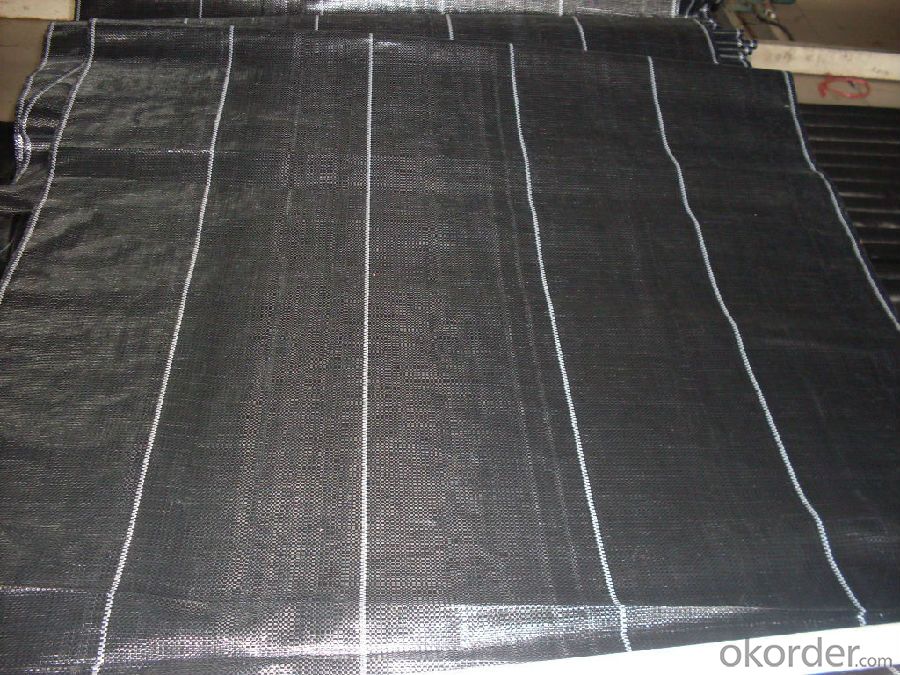
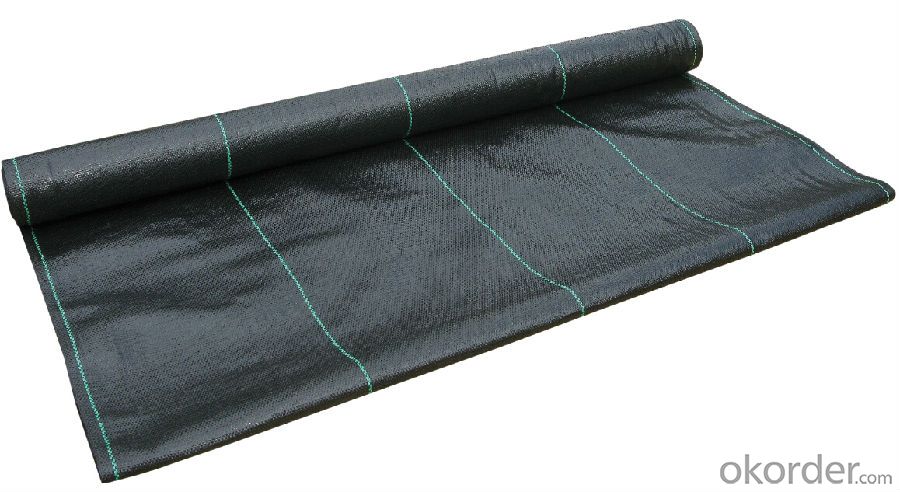
Specification
1) Weight / Mass: 75g/m2-400g/m2 .
2) Width: Within 8 m (1m-8m)
3) Length: 50m-100m/roll (as request)
4) Material: PP
5) Color: Black , white , grey, others
6) Certificate: CE/ISO9001, ISO14001 .
7) Manufacturing method: nonwoven / woven.
8) The biggest geotextile manufacturer/factory in China for many years . The equipment is introduced from Germany.
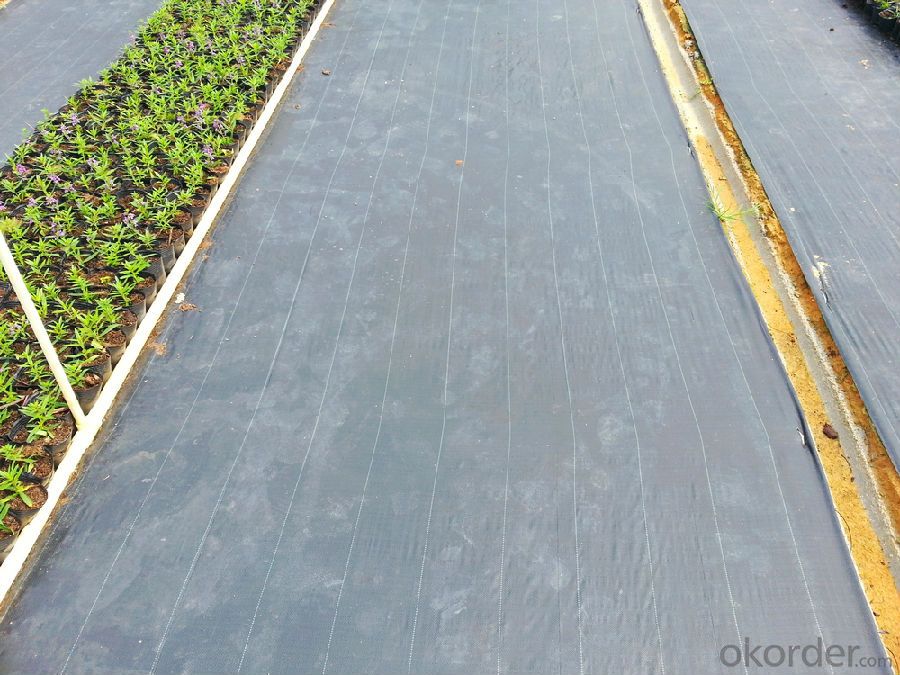
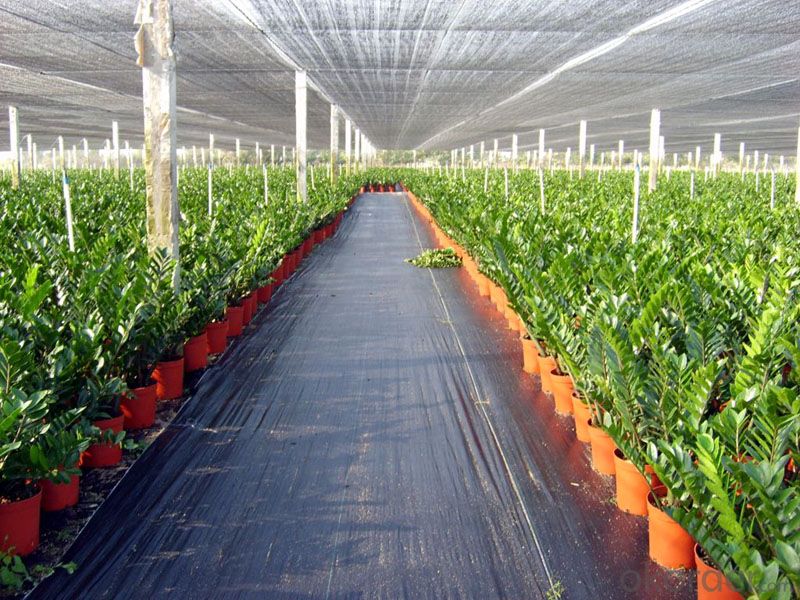
FAQ:
Q1: What is your minimum order quantity?
A:The minimum order quantity is 5000 ,but it is negotiable.
Q2:What is your payment terms?
A: T/T,Western Union,Paypal,L/C...
Waiting to cooperate with you!
- Q: What are the main functions of geotextiles?
- The main functions of geotextiles include filtration, separation, reinforcement, and drainage in various civil engineering and construction applications.
- Q: How do geotextiles help with filtration in stormwater management systems?
- Geotextiles help with filtration in stormwater management systems by acting as a barrier that allows water to pass through while trapping and retaining sediments and pollutants. They prevent the clogging of drainage pipes and channels, allowing for effective water flow and reducing the risk of flooding. Geotextiles also enhance the quality of water by removing harmful substances and promoting the natural filtration process, thereby improving overall stormwater management.
- Q: 300 grams of geotextile how much money a square meter
- See the requirements of the data indicators in general about 2.4 Huazhi geotextile material manufacturers
- Q: What is the effect of tunnel geotextile failure on tunnel quality
- Poor quality geotextile certainly have an impact ah, I am professional production of geotechnical materials wish smooth
- Q: How do geotextiles help with reinforcement of geogrids?
- Geotextiles help with the reinforcement of geogrids by providing a stable base and preventing soil erosion. They act as a separation layer between the geogrid and the soil, distributing the load evenly and increasing the overall strength and stability of the structure.
- Q: Are geotextiles resistant to biological degradation?
- Yes, geotextiles are generally resistant to biological degradation.
- Q: Can geotextiles be used in agricultural drainage systems?
- Yes, geotextiles can be used in agricultural drainage systems. They are commonly used as a filter fabric to prevent soil particles from clogging drainage pipes while allowing water to pass through. Geotextiles help improve the efficiency and longevity of agricultural drainage systems by preventing soil erosion and maintaining the proper flow of water.
- Q: How do geotextiles help with moisture management in construction projects?
- Geotextiles play a crucial role in moisture management in construction projects by acting as a barrier against water infiltration, allowing excess water to drain away while retaining sufficient moisture for the construction materials.
- Q: How do geotextiles help with reinforcement of geogrid reinforced walls?
- Geotextiles help with the reinforcement of geogrid reinforced walls by acting as a separation layer between the soil and the geogrid. They prevent the intermixing of soil particles and the geogrid, maintaining the integrity and effectiveness of the reinforcement system. Additionally, geotextiles also aid in the filtration of water, preventing the clogging of the geogrid and ensuring proper drainage. Overall, geotextiles enhance the stability and longevity of geogrid reinforced walls by providing essential separation and filtration functions.
- Q: Waterproof geotextile market demand prospects?
- Supply geotextile, geomembrane, composite geomembrane and other geotechnical materials. Market prospects are excellent. Geotechnical material manufacturers to answer your questions
Send your message to us
PP Woven Fabric/ Ground cover/ Weed Barrier
- Loading Port:
- China main port
- Payment Terms:
- TT or LC
- Min Order Qty:
- 5000 m²
- Supply Capability:
- 1000000 m²/month
OKorder Service Pledge
OKorder Financial Service
Similar products
Hot products
Hot Searches
Related keywords
